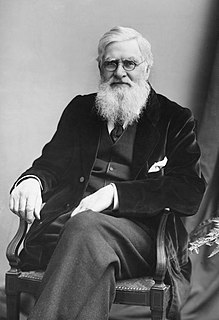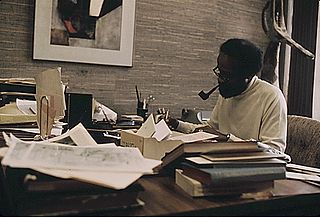A Quote by Confucius
If some years were added to my life, I would give fifty to the study of the Yi, and then I might come to be without great faults.
Related Quotes
For they might be parted for hundreds of years, she and Peter; she never wrote a letter and his were dry sticks; but suddenly it would come over her, If he were with me now what would he say? --some days, some sights bringing him back to her calmly, without the old bitterness; which perhaps was the reward of having cared for people; they came back in the middle of St. James's Park on a fine morning--indeed they did.
There might have been a hundred or a thousand life-bearing planets, had the course of evolution of the universe been a little different, or there might have been none at all. They would probably add, that, as life and man have been produced, that shows that their production was possible; and therefore, if not now then at some other time, if not here then in some other planet of some other sun, we should be sure to have come into existence; or if not precisely the same as we are, then something a little better or a little worse.
Our great whirling planet, our human individuality, were not given to us merely that we might exist for a time and then vanish into nothingness, but that we might question what it is all about.
To live without understanding the purpose of life is foolish, a waste of time. The mystery of life surrounds us; we were given intelligence in order to solve it.
History, we can confidently assert, is useful in the sense that art and music, poetry and flowers, religion and philosophy are useful. Without it - as with these - life would be poorer and meaner; without it we should be denied some of those intellectual and moral experiences which give meaning and richness to life. Surely it is no accident that the study of history has been the solace of many of the noblest minds of every generation.
The ills and disorders of the 14th century could not be without consequence. Times were to grow worse over the next fifty-odd years until at some imperceptible moment, by the some mysterious chemistry, energies were refreshed, ideas broke out of the mold of the Middle Ages into new realms, and humanity found itself redirected.
Who freed the slaves? To the extent that they were ever u2018freed,' they were freed by the Thirteenth Amendment, which was authored and pressured into existence not by Lincoln but by the great emancipators nobody knows, the abolitionists and congressional leaders who created the climate and generated the pressure that goaded, prodded, drove, forced Lincoln into glory by associating him with a policy that he adamantly opposed for at least fifty-four of his fifty-six years of his life.
I give it as my fixed opinion, that but for our graduated cadets, the war between the United States and Mexico might, and probably would have lasted some four or five years, with, in its first half, more defeats than victories falling to our share; whereas, in less than two campaigns, we conquered a great country and a peace without the loss of a single battle or skirmish.
I started acting when I was five years old. I found it randomly, through listening to my brother study monologues. I auditorally started memorizing them for no reason, and started repeating them to anyone who would listen to me. And then, I begged my mom to let me do whatever that meant because I couldn't put into words exactly what that meant. It just meant me happy. And then, when I was 11 years old, I realized what I was doing and I looked to my mom and said, "Can I make this something I can do for the rest of my life?" She was like, "Yeah, sure, if you want to." And I was like, "Okay, great! I think I might want to do this forever."
When we first got married, we made a pact. It was this: In our life together, it was decided I would make all of the big decisions and my wife would make all of the little decisions. For fifty years, we have held true to that agreement. I believe that is the reason for the success in our marriage. However, the strange thing is that in fifty years, there hasn’t been one big decision.










































